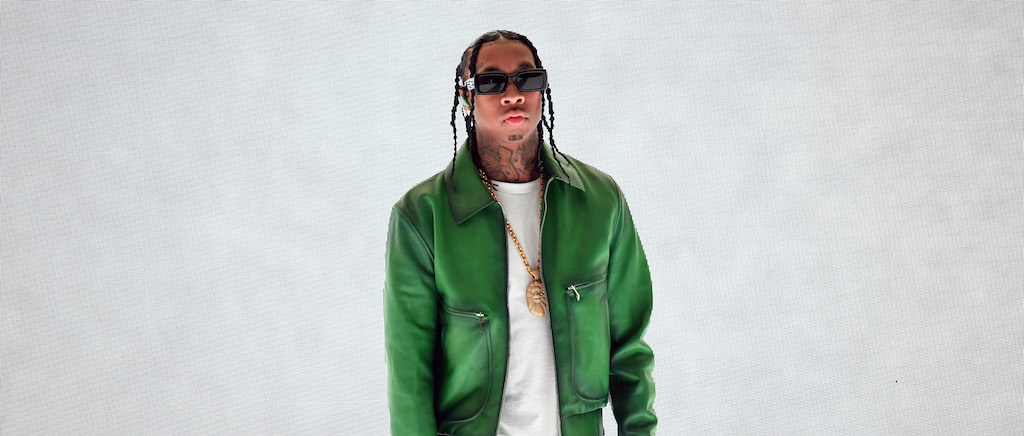
Earlier this month, Tyga and Brooklyn-based art collective MSCHF teamed up for their Wavy Baby sneakers, which to most consumers, looked awfully similar to a pair of Vans Old Skool sneakers. MSCHF even admitted to the similarities, saying that the Wavy Baby sneakers were a parody of Vans’ classic shoe. To the surprise of no one, Vans filed a lawsuit for trademark infringement against Tyga and MSCHF, and to the duo’s assumed disappointment, they will now have to put a halt on future sales of the Wavy Baby sneakers. It comes after a judge ruled in favor of Vans due to the shoes’ “striking visual similarities.”
According to Billboard, U.S. District Judge William F. Kuntz shared the ruling on Friday and he did not hold back in his statement about the matter. “Despite defendant’s assertions the Wavy Baby shoes belong in museums and galleries for exhibition, the production of 4,306 pairs of shoes places the Wavy Baby shoes on a mobile footing vastly different from one found at the Brooklyn Museum,” Judge Kuntz wrote. MSCHF previously said that their Wavy Baby sneakers were a parody that was meant to comment on “sneakerhead” culture, but Judge Kuntz said that he nor consumers would catch the joke.
“Whatever the actual artistic merits of the Wavy Baby shoes, the shoes do not meet the requirements for a successful parody,” he wrote. “While the manifesto accompanying the shoes may contain protected parodic expression, the Wavy Baby shoes and packaging in and of themselves fail to convey the satirical message.”
Despite this ruling, MSCHF claimed that nearly all orders of the Wavy Baby shoes had already been sold and shipped. As a result, Judge Kuntz also ordered MSCHF to place all profits from the shoe into escrow so that they could potentially be returned to consumers. He also ordered them to cancel or reverse any and all orders that they could.
In response to the ruling, MSCHF’s attorney Megan K. Bannigan said that the company would continue the fight and claimed that the decision entirely omitted key legal precedents. “The court’s decision fails to recognize MSCHF’s First Amendment rights to artistic expression, regardless of the particular medium or form of that expression,” Bannigan said. “MSCHF will continue to litigate this case, including through all available appeals, to secure its and all artists’ freedom to make their art.”
